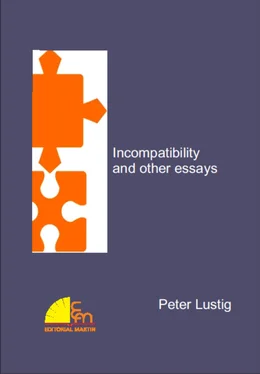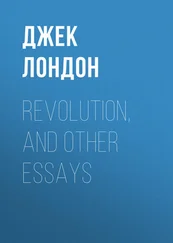This being so, one would have to ask what the people who vote for politicians expressing seemingly unwarranted resentment expect to gain while, to all intents and purposes, they appear to be doing so against their own best interests. There has got to be a different reason, or a number of different reasons, capable of providing personal and collective reassurance before cultural discomfiture at the idea that, as a people, they would be suffering the demeaning effect of subjection at the hands of aliens or outsiders. Can it be said that such a disposition of mind ought to be taken casually, because everybody knows that market size creates economic dependency, by definition, reducing lesser partners to minor roles? Of course not, because this kind of subservience amounts to a loss of freedom.
Freedom can mean a lot of things, depending chiefly on whatever hopes and fears may appear foremost to a person, on his home ground. This is where the question of an identity comes into play. An identity only becomes distinct as it is reflected between individuals, within a community that shares some easily recognizable common traits. (That is why too much diversity in a community is not of much help to achieve this feeling of belonging and it is important to train individuals to conform to a pattern of behaviour through “education”)
Mention of an education brings up the question as to why, even though “uneducated” populations are so malleable to populism, “educated” populations should have had their heads turned by mindless psychos, who had not a thought for the cravings of individuals and whose only aim it was to lock everybody tightly into an airtight system that would respond instantly to each and every one of these maniacs’ whims. This refers to Hitler, Stalin and so forth. Such self-appointed emblems of a shared identity -whether they were called nationalists, communists, fascists, etc.- played upon the uncertainty of the fate that awaited each man who stood unprotected in the path of concerted ethnocentric or class centred action, among cheering crowds galvanized by a rousing sense of fellowship.
In some respects, it might be said that, supposing an overhead view of the plight of both Russia and Germany had been taken toward the end of World War II, it would have been hard to tell the losers from the winners, in terms of victimization and brutality (not to mention material deterioration). It would not take a very far-reaching guess to draw up a comparison of the conditions under which people in the Western democracies were living, with those of the population on the losing side. Hence, there would not be much reason to think that politics were being conducted very differently here and there. Who knows whether Churchill, Roosevelt or Truman would have fared better at a war crimes trial, if they had not won the war? After all, Karl Popper felt he had to write “The Open Society and Its Enemies” to provide moral justification for the West’s decision to fight, so as to make the point clear (presumably because it was not so easy to see).
There can be no question about the ethical motivation supporting the struggle for the survival of democracy being beyond dispute. But, the point being made here is that there was little difference between the values that upheld the faith in their cause, on either side. Furthermore, this same singularity of values was confirmed at the time of post-war reconstruction. It applied to individuals and communities alike. The same traditions, updated. The same loyalties and allegiances. Unfortunately, the same heroics and brainwashing that led previous generations to march joyfully to obliterate everything their upbringing had prepared them to revere, were revived almost as soon as the peace had been signed. Only out of precaution was a shooting war prevented and the cold war kept within limits. But the thinking patterns and the feelings were the same, save for the notion that political integration might save Europe from future heartbreak. To the extent that the European Union would eventually broaden the unit within which otherwise estranged, politically unviable, regional populations could be included, a tentative solution was provided to prevent the possibility of another war. However, in the process, historically relegated national identities were given a place under the sun and stimulated to live up to the same standards that had been curbed by the defeat of militant nationalism. How was becoming a part of the European Union different from lining up with Greater Germany? Could that account for having gone to war?
Writing to enhance people as individuals and as members of separate and sovereign community centred political entities, one is obliged to put forward the notion that, with all the evidence showing that the manner in which men were taught to stand up for themselves and define their identity could only lead to bloodshed and destruction, it is high time that this situation should be addressed from a different angle. Seeing that the largely untrained and illiterate, or barely literate, populations of the Third World might be easier to influence (as the natives of Latin America were influenced by the Church, from the earliest days of the conquista), it would seem unforthcoming to propose allowing one or two generations to go by before expecting any progress to materialize through education. Already the populist trend in politics -not only in Latin America, but chiefly in all those countries with profoundly divided societies- indicates that, even though the people may have little or no understanding of economics, everyone knows well enough what suits him best and politicians who focus on assisting the least favoured sectors will have won the day hands down. So much for populism. A cause that ought to be of greater concern involves what sort of people are really being helped, if elections are going to be won by whoever doles out the largest handout: those who cannot help themselves, or those who will not; or those who turn politics into a full scale racket?
I.The Singularity of Selfhood
Given the inordinate predicament attained by Freudian psychology, in this day and age, it has become difficult to mark the territory of motivation in terms of an objective appraisal. It is always possible to attribute human behaviour to basic aspects of theory, without taking into account that, while theory involves conceptualization, some facts may be unwittingly overlooked or left out. This reasoning applies as much to the vagaries with which “human nature” is frequently invoked, to sideline complications in the search for causes, as to the deeper implication that certain unflagging principles may, indeed, exist beyond the whimsical realm of personal preference (conscious or otherwise) that determines how choices are made.
Actually, if there really is an ontological basis to the real world, it is hard to accept that there can be room for uncertainty or relativism in connection with available options. One gets the impression that the seemingly aimless digressions in which “science”indulges are only an excuse to cover up ignorance, a temporary face saving procedure to help self-anointed “experts” push forward the deadlines they have set for themselves, in response to public or personal expectations.
But, the fact remains that, while it continues to be considered legitimate to attribute the quality of an objective truth to evaluations made in response to stimuli, it would be wrong to omit a comparison with facts or reasons that are external to the circumstances under consideration. It would be even farther removed from the truth to say that something appears in a certain light because it is being regarded so through a particular lens and that, in reality, how it is seen depends on the colour of that lens. It might as well be said, risking charges of Medievalism, that grasping this “truth” is beyond the scope of the intellect, instead of denying the obvious by shrouding it in mystery.
Читать дальше












